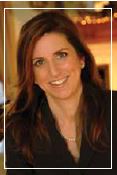Helping Parents To Talk About The Real Stuff: What Not To Say
W e care about our children, whether they are 3, 13, 23 or 43-years-old. We want to know what is going on in their lives because we care about them. We also want to support them, guide them, and help them when they are faced with difficult choices, big decisions or issues to overcome. Something seems to happen when our sweet, compliant children become hormonal, abstract-thinking, independence-seeking teenagers.
e care about our children, whether they are 3, 13, 23 or 43-years-old. We want to know what is going on in their lives because we care about them. We also want to support them, guide them, and help them when they are faced with difficult choices, big decisions or issues to overcome. Something seems to happen when our sweet, compliant children become hormonal, abstract-thinking, independence-seeking teenagers.
Their desire to tell us every detail of their day vanishes. Their view of us as “all knowing” and their hanging on every word we say disappears as well. This is disappointing, frustrating and at times exasperating.
Today’s teenagers have a lot to deal with: academic pressure, relationship pressure, sexual pressure, being bullied, feeling alone, feeling “different,” family issues, depression, and of course alcohol and other drugs.
The good news: parents, grandparents, school professionals, law-enforcement, and other adults want to help teens navigate difficult choices and pressures. The other good news: teens want to talk with their parents and the other adults in their lives. Unfortunately, one unintentional comment from a
well-meaning adult can shut down an entire conversation.
Parents of children of all ages have experienced this “shutting down” after an innocent question or comment. When young adults leave for college, they seem so far away. Parents who ask questions about classes, friends, or potential love interests are often met with one-word answers or silence. They may be accused of “interrogating.”
When talking with grown children, parents’ questions about everyday life—the grandchildren, the new job, the current diet—may be answered defensively, as if parents are prying into clandestine information.
It is not always easy, but parents need to find a way to communicate effectively about “day-to-day” issues with their children, so their children will feel comfortable talking with them about the big issues. And there will be plenty of them.
At Drug Free Collier’s Sixth Annual Community Awareness Luncheon on March 6, 2014, we will talk about specific “dos and don’ts” that make it more likely teenagers (and those older and younger too) will fill you in on their lives. And even more important, will seek you out during challenging times.
During adolescence, good communication between parents and their teenage sons and daughters strengthens their connection and bond. A lack of communication can be dangerous, or even deadly.
Drug Free Collier understands the challenges of raising a family and is working to provide important resources to help parents navigate critical years in their children’s lives. Dr. Lisa Boesky is the author of When to Worry: How to Tell if Your Teen Needs Help – and What to Do About It. She has been featured on CNN, 20/20, Bill O’Reilly and other national programs.
The annual luncheon is the largest awareness campaign in our community and the primary fundraiser to support local strategies to prevent adolescent substance abuse. Proceeds from this annual fundraiser benefit important initiatives such as Operation Medicine Cabinet®, and school-based prevention
clubs known as the CORE Society.
“We know that alcohol and drug addiction happens in the best of families. In fact, almost 10 percent of the U.S. population suffers from the disease of alcoholism or drug addiction. Since studies show that 90 percent of all addictions begin during the teenage years, we must focus our energy on reaching young people,” said Melanie Black, Executive Director of Drug Free Collier.
At this year’s luncheon, Drug Free Collier will honor Collier County Sheriff Kevin Rambosk for his unparalleled efforts to make a positive impact in the lives of our local youth. Attendees will also be delighted with a special performance by Jessie Michaels, a Naples teen singing sensation. In addition, FOX 4 co-anchors Patrick Nolan and Emily Dishnow will serve as masters of ceremonies at the event which takes place at The Ritz Carlton Golf Resort.
For information call 239.377.0535 or visit www.DrugFreeCollier.org.

Leave a Reply
Want to join the discussion?Feel free to contribute!